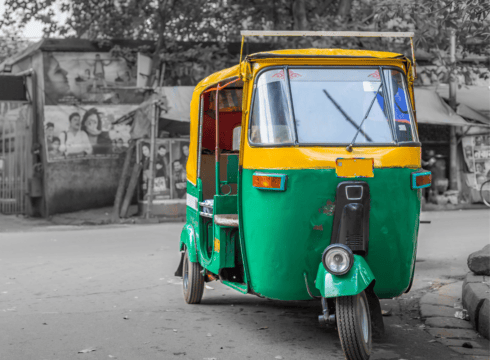The transport department of Karnataka issued a notice to the companies following complaints about them over charging customers
The companies have been accused of charging higher than prescribed fares for auto rides, and the department has sought a compliance report from them
The cab-aggregator apps are in violation of the Karnataka On-Demand Transportation Technology Aggregators Rules, 2016 by running auto services, the notice said
Inc42 Daily Brief
Stay Ahead With Daily News & Analysis on India’s Tech & Startup Economy
The Karnataka government has asked ride-hailing apps Ola, Uber and Rapido to discontinue their auto services in Bengaluru within three days for overcharging customers.
The state’s transport department issued a notice to the companies following complaints about them overcharging customers for autorickshaw rides.
In the notice issued to Uber, Ola parent ANI Technologies, and Rapido, the transport department referred to complaints against the aggregators for charging a minimum of INR 100 for auto rides for even a distance under 2 kilometres and called it an “illegal practice”.
The government also asked these companies to submit a compliance report. The apps may face legal action if they do not comply with the order.
“Auto services should be stopped, and customers should not be charged more than the government-prescribed fare,” the notice read. Currently, the minimum auto fare is fixed at INR 30 for the first two kilometres, and INR 15 for every subsequent kilometre.
The transport department also said that the cab-aggregator apps were in violation of the Karnataka On-Demand Transportation Technology Aggregators Rules, 2016 by running auto services. The licence has been granted to the aggregators to run only taxis and not autos, it said.
While Ola and Uber continue to dominate the cab-hailing industry in India, both the players have been seeing a rise in customer complaints and growing user dissatisfaction around surge charges, booking cancellation, among other issues.
Last month, the Competition Commission of India (CCI) directed the cab aggregators to adopt self-regulatory measures to address concerns around surge pricing. In an advisory, the CCI also asked them to formulate a clear and transparent policy on sharing surge pricing revenue between drivers and ride-hailing apps.
Recently, the Centre also pulled up cab aggregators over their failure to address rising consumer complaints during a meeting held with representatives of cab aggregators such as Ola, Uber, Meru, Rapido.
Currently, Ola, Uber and Meru dominate the Indian four-wheeler ride-hailing segment. According to a report, the online taxi services market in India was valued at INR 30.72 Bn in FY20. With an estimated compound annual growth rate (CAGR) of about 12.93% during the FY21-FY25 period, the market is projected to reach a value of INR 55.15 Bn by FY25.
{{#name}}{{name}}{{/name}}{{^name}}-{{/name}}
{{#description}}{{description}}...{{/description}}{{^description}}-{{/description}}
Note: We at Inc42 take our ethics very seriously. More information about it can be found here.


